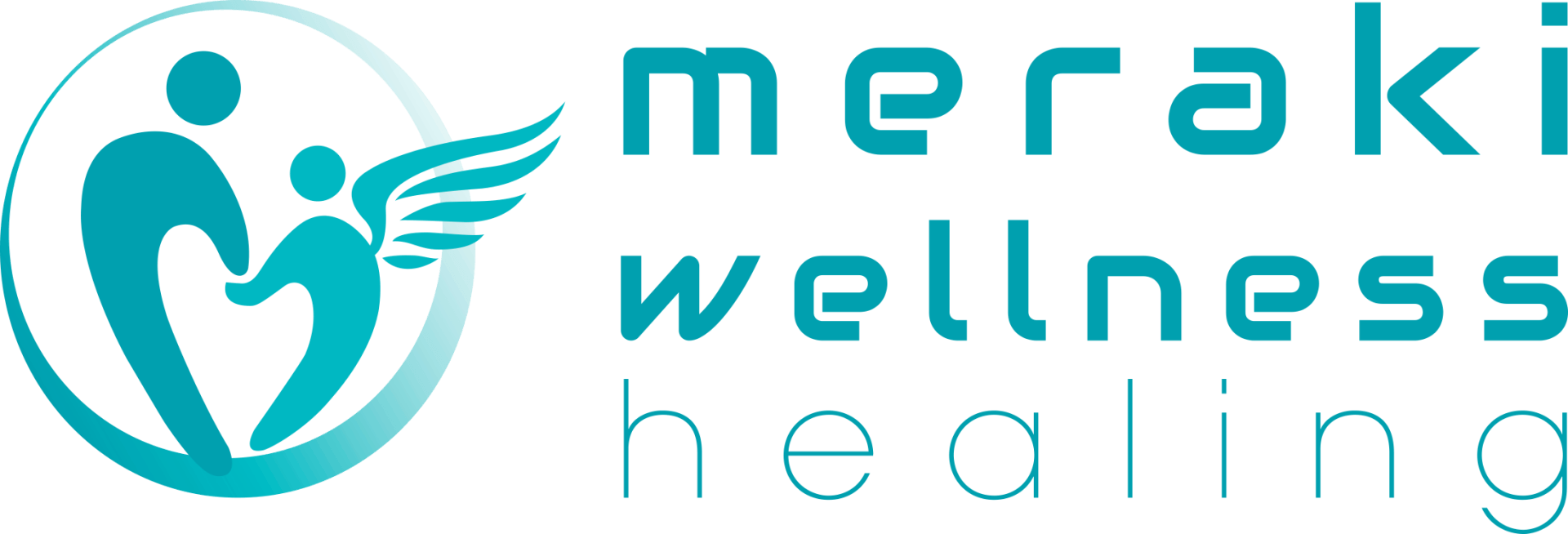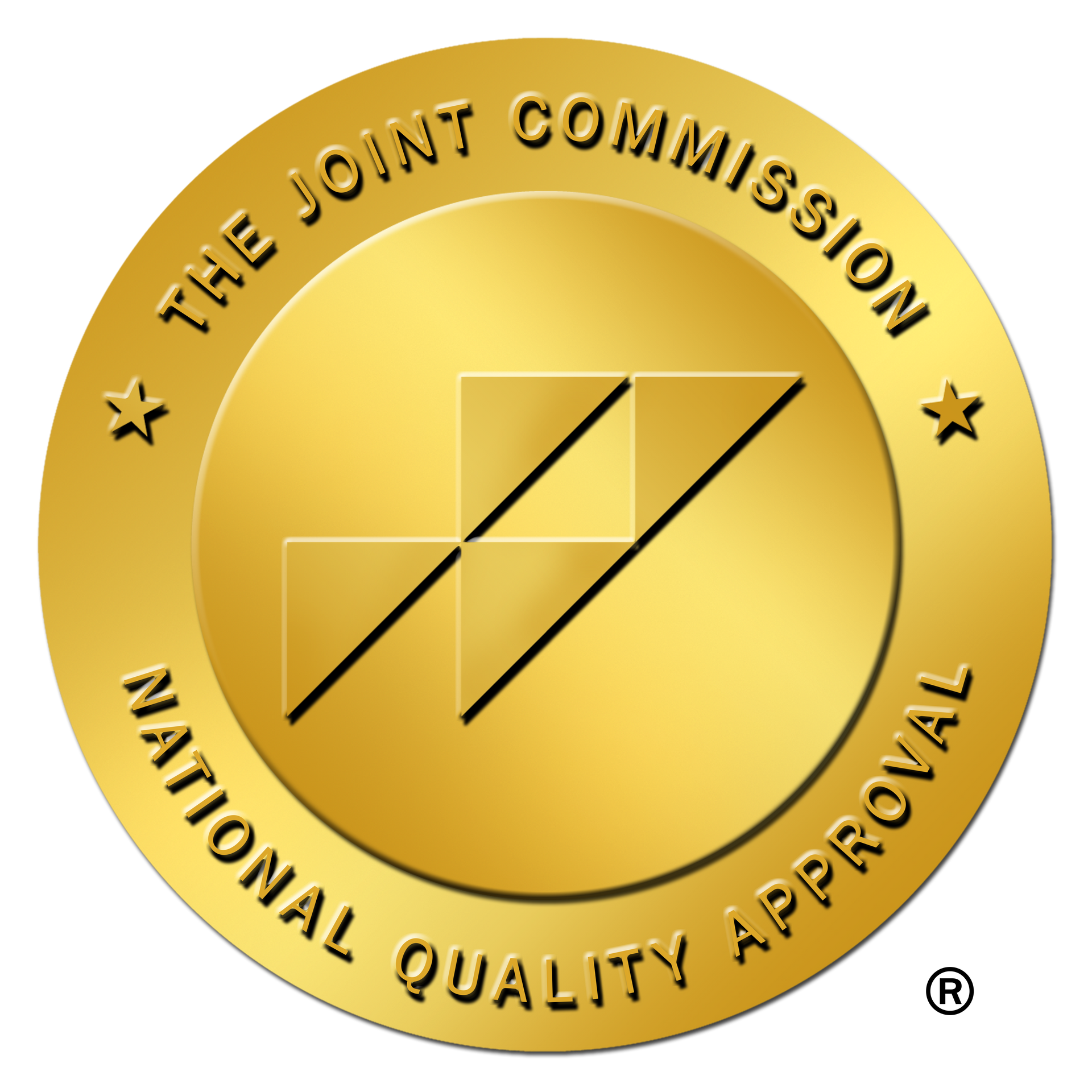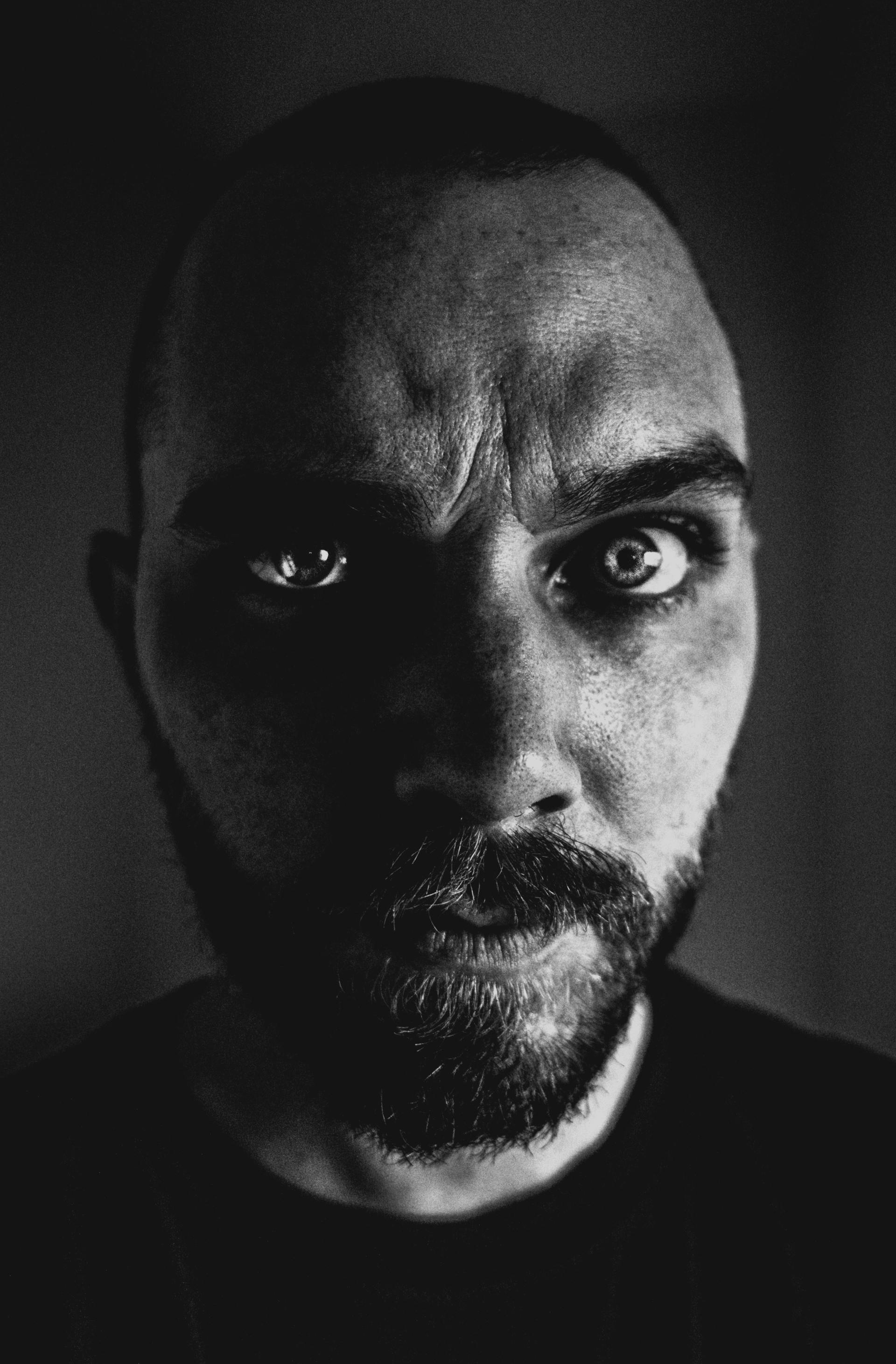
Behavioral Health



Providing services in Miami-Dade and Broward County
We Accept Insurances.
Commercial Plans, EAP, Medicaid and Medicare
BLOGS
Blogs

By Lindsay Wallick
•
19 Aug, 2019
Not everyone in life needs therapy, but there are a few people who have gone through things making them seek the help they need. However, sometimes people who need help don’t even know it because they are so associated with what they are feeling. Here are five things you should look for to know if you need therapy... and what to do about it. Depression It’s ok to feel down from time to time but it isn’t normal to feel extremely low for long periods of time. Many people say they don’t feel like themselves anymore. If this happens to you for a long period of time then something actually might be off and it could be a sign that you need therapy. Substance And Lifestyle Abuse We should all be able to cope with stress and life’s obstacles normally. Abusing anything isn’t good. Especially if those things cause you harm in any way. Everything in moderation is fine but anything in excess can be troublesome. Even running 100 miles isn’t good for you. If you find that you need something in order to cope with life then it could be a sign that you need therapy. Loss Losing anything can be devastating. Many people find natural ways to cope like talking with friends and family, crying it out, etc. However, some people are never able to cope after a loss. If you find that you are unable to get over losing someone or something (like a great job) and it sends you down an “endless spiral” then it could be a way to know that you need therapy. Check out this article on dealing with loss. Trauma Trauma is a natural part of life. However, many people experience severe trauma that they are never able to overcome. If you go through something traumatic and feel lower than ever for a prolonged time then it could be a sign that you need help. Losing Interest If things that used to be enjoyable for you like working or playing a sport, but all of a sudden you no longer enjoy it then it might be a sign that you need to get some help. It’s normal to lose interest in things but when you start to dislike doing anything that you used to it might be a sign that you need some help. How to know if you need therapy? If you are experiencing any of the above that we mentioned then you might want to consider giving us a call to schedule a free 30-minute call. We will talk to find out what it is you need and offer you solutions. Contact us today!

By Lindsay Wallick
•
14 Aug, 2019
Art has the power to change lives and transform people’s perceptions of the world and of themselves. We draw, paint, write, play, and move as an expression of our innermost selves. Art is a great tool for coping so when you feel like you need to make art then you should listen to your body and mind by making the art that your soul longs for. There are many ways in which art can help you express your feelings which we will list below. Catharsis Art can be a way to just let it all out and get rid of anything that’s hiding in your brain. We have so much anger, frustration, and guilt that needs an outlet. Art is that outlet. Put your feelings on a canvas by letting all the rage or upset vent out of you onto with a paintbrush or pencil. Destress Feelings of stress come from fear. If we can somehow draw or write about what we fear it does a lot to destress us in very erratic circumstances. We no longer will feel the fear of whatever the made-up scenario is in our heads. Perspective Art can help us change our perspective and this goes a long way to help you express your feelings. When you can change the way you see things you will be able to express yourself in a more controlled way. Expansion The more we out what is in our heads out there in the form of music, drawings, or sculptures, the more we can expand our point of view. It helps us to expand our minds by showing us what others think of what we have created. Do others see the world the way we do? You might be surprised. No matter what, expressing yourself through art will expand your mind and horizons. Art is one of the greatest parts of life. Without it, there would be no growth or enjoyment. Through art, we can change our perspective, expand our minds, release our feelings, and destress ourselves. If you have any feelings you need to express it would be great for you to start making some art as soon as possible. Play an instrument, dance, sing, paint, make a sculpture, or draw a doodle. Anything to help you get your feelings out there will go a long way to making you feel more alive.

By Lindsay Wallick
•
08 Aug, 2019
Life is like a roller coaster. There are ups and downs that occur every day that are common to normal life on planet earth. However, what isn’t normal is having extreme emotions that change erratically and spontaneously (as is the case for people with Borderline Personality Disorder). In order to regulate our mood so that we can feel (and be) more stable, we can try therapies such as Dialectical Behavior Therapy which have proven to be very effective for treating mood disorders like Borderline or General Anxiety Disorder. Below we have listed some of the ways Dialectical Behavior Therapy can work to treat mood disorders. Mindfulness: DBT teaches people how to focus on the present moment. Think about it: most of the negative moods we experience come from one thing, FEAR. If we can learn to focus on right here right now we can see what is really going on around us. Rarely are we ever in real danger. Most of the fear we feel comes from a construct of the future or the past. The past is gone. The future is now. I know it sounds hippy-dippy to say, but if you learn to be one with the moment then the fear will disappear. “Yesterday is history, tomorrow is a mystery, today is a gift of God, which is why we call it the present” (Bill Keane). Distress Tolerance: Dialectical Behavior Therapy teaches you how to accept yourself and your current situation. People learn how to manage crises through distraction (to change your focus), self-soothing, improving, and coming up with the pros and cons. Interpersonal Effectiveness: Rocky moods can create a rocky relationship. DBT teaches how to be assertive in a positive way, especially in relationships. As a human it’s important to express your dreams, desires, and needs to others so they know where they stand with you and where you stand with them (metaphorically speaking). Also, saying "no" when you don’t want something or don’t want to do something is necessary in order to continue with your life. Doing these things can be difficult especially if you are not used to it. So, when people first exoress themselves they might come across as hurtful or rude. But, being able to be kind and loving while expressing yourself and asserting yourself is vital to keeping a relationship positive and healthy. Emotion Regulation: DBT is most effective for treating mood disorders and coping with negative emotions (for example, anger) because it helps in reducing one's susceptibility to emotional upheavels. It also helps you by increasing the amount of positive emotional experiences you experience throughout your life. Our quality of life depends on the quality of the emotions we experience on a daily basis. If we experience crazy emotions often we can start to feel out of control. In Dialectical Behavior Therapy we can get a better sense of control over our lives by using the four strategies listed above. If you want to know if you have a mood disorder, or you know you can a mood disorder and want to treat it then schedule a free 30 minute call with us at Meraki Wellness to see if we can help you feel better and have a better quality of life.

By Lindsay Wallick
•
03 Aug, 2019
Our emotions can make or break our reality. Emotions like happiness and joy can create a positive reality and enjoyable experience of life. On the flip side, emotions like anger and resentment can make us feel negative and bitter towards the world. We shape our reality with our thoughts which then create the emotions we feel so it’s important to learn how to change the way we think and feel in any and every moment if we wish to have a nice life. Below we have listed 5 ways to regulate your emotions so that at any time you can feel the way you want. Sunlight It doesn’t matter what you take or say, if you don’t get sunlight you will feel depressed. Sunlight activates serotonin which is the happy neurotransmitter. That’s why people who live in really cold climates and can’t get sunlight end up with SAD, Seasonal Affective Disorder (seasonal depression). Get some regular sunlight by going outside regularly. Even eating lunch on your break outside will be enough for most people. Change Your Physiology Gesture in a strong way, move your body, breathe deeply, jump up and down and scream...all these things have one thing in common- they get you moving. Emotion is created by motion. The way you move and the way you feel are intimately linked. Depressed people have rounded shoulders, head down and frown on their face. Excited people have an open body head up and heart racing. The most powerful way to change how you feel at any moment is to change the way you use your body. Stand in a power pose by opening your body as wide as you can, this increases testosterone and will make you feel confident. Stretch, jump, take a walk, do things that get you to shift the way you move and in less than 5 minutes you’ll feel and think completely different. Ask Yourself Empowering Questions “Why do bad things always happen to me?” That kind of question gets you to focus on all the bad about you. But if you ask yourself a better question like, “What am I most grateful right now if I could be grateful?” Or, “what can I learn from this?” Those are more empowering questions because they get you to FOCUS on positive things that get you moving forward. Ask better questions and really look for the answer and the emotions you want will arise. Create Better Meanings For Things In the book Man’s Search For Meaning, Victor Frankl writes about his experience in the concentration camps of Nazi Germany back in the First World War. He talks about how the people who survived did so by creating better meanings for their circumstances. They chose to believe that what they were going through had a purpose and a meaning that was more powerful than any pain that was immediately endured. If you wish to feel better in your life you must focus on the positive meaning behind things instead of just thinking bad things always happen to good people. Eat Quality Food You are what you eat. It’s old but true. Anything you eat replaces the cells in your body. If you eat crap you are going to feel like crap. Find out what ratio of protein, fats, and carbs that your body needs by feeling, listening, and paying attention to the signs. If you like fatty meats because they fill you up then you should eat them! If you rarely crave meat and like fruits and vegetables then eat the way you should listen to it. We are all different and unique, some people are fast oxidizers, some are slow oxidizers, and some mixed. Some people are sympathetic dominant and other parasympathetic dominant. There is no one-sized fruits approach to diet and lifestyle. Just know that any foods you are intolerant to can cause digestive issues which can prevent the creation of serotonin (due to inflammation). If this happens you will feel depressed because the happy molecule isn’t being made (most is made in your gut). Try going Paleo for 30 days and then reintroducing non-paleo foods one at a time for three days each. Whichever foods give you a bad reaction- stay away from. Remember that the most powerful force you have to change the way you feel is your body. Controlling what you do with it can make a world of a difference in how you feel and in your life. So, use the strategies that I listed above to regulate your emotions to more positive ones! If after doing all these and you still feel like your emotions are just uncontrollable and/or your relationships are suffering because of it then schedule a complimentary consultation with us at Meraki Wellness where we are dedicated to optimizing the quality of healthcare through an integrative approach to health and wellness. We include both conventional and complementary treatments for general health, healing and well being.

By Lindsay Wallick
•
23 Jul, 2019
Your body is your mind. Your mind is your body. If your shoulders collapse and your head is down how do you feel? Depressed or excited? Probably depressed...What about when you are stressed from working too much and haven’t eaten, are you elated and content? Not at all. You probably feel and act irritable, because just like we said: your body is your mind. For this reason, everyone (dealing with a mental illness or not) can benefit from a few quick tips to improve your (mental) health starting with taking care of your body. Tip 1: Drink more spring water. It’s incredible how many people just don’t drink (or like the taste of) water. Many people would rather put their foot under a moving car than drink plain ole’ water, but the truth is: YOU ARE MADE OF WATER! So drink more of it because if you don’t then your body will cry out for it in many ways like acne, irritability, cravings, weakness, fatigue, and so on. Drink half your body weight in ounces per day. Tip 2: Get more deep sleep. Sleep quality trumps quantity. Just because you are getting 8 hours of sleep doesn’t mean you are getting ANY restorative sleep. Most people spend their entire lives rarely getting deep sleep. So here are some tips to help you sleep deeply. First, don’t take sedatives (including alcohol). Despite making you drowsy it actually will worsen your sleep by preventing you from getting into your deep sleep. Second, where blue blocking glasses. We were not made to fall asleep with the blue light from screens and technology. It makes us alert and awake. However, we did adapt to fall asleep around a fire, so red light actually can make it easy for us to go to sleep and get into a deep sleep. Third, don’t drink caffeine past 4 pm because it has a long half-life and if you drink it at 8 pm then you will still have a lot in your system when it’s time for snoozing. Just because you can fall asleep after an espresso doesn’t mean you are getting quality sleep. And fourth, exercise in the morning because this activates cortisol which helps your melatonin to release when the sun goes down making you tired and putting you into a deeper sleep. Tip 3: Get more sunlight (especially in the morning). Sunlight in the morning activates cortisol and serotonin which sets your circadian rhythm in sync so that when the sun goes down at night you aren’t wired but rather tired and ready to doze off (1). Avoid exercising too late because it can spike cortisol levels at night when they should be lower, causing you to stay up and alert when you want to be sleeping. Tip 4: Stretch and loosen your joints. Your mind is a direct reflection of your body. If your body is stiff and inflexible then your mind will be stiff and inflexible. So, to prevent stagnation it’s important to move your body through its end ranges of motion once in a while. Sit at the bottom of a squat for a few minutes. Bend forward as far as you can till you can touch your toes. Stretch your chest out. Stretch all the muscles that cause you to close up because it will help to make you feel more open and confident. The muscles include your chest, abs, hip flexors, and lats. (FYI these are the same muscles that get short and tight when you spend all day sitting...not good...so avoid sitting as much as you can). Tip 5: Walk in nature. There is a tradition in Japan called shin-rin yoku, also known as forest bathing. Studies show that people who walk in nature report less stress and feelings of anger than those walking in a city (2). Try it for yourself, it’s incredibly relieving! Resources Mead, M Nathaniel. “Benefits of Sunlight: a Bright Spot for Human Health.” Environmental Health Perspectives, National Institute of Environmental Health Sciences, Apr. 2008. Park, Bum Jin. “The Physiological Effects of Shinrin-Yoku (Taking in the Forest Atmosphere or Forest Bathing): Evidence from Field Experiments in 24 Forests across Japan.” Environmental Health and Preventive Medicine, Springer Japan, Jan. 2010.

By Lindsay Wallick
•
15 Jul, 2019
According to the Mayo Clinic, Borderline Personality Disorder is a mental disorder characterized by unstable moods, behavior, and relationships. But, it is so much more than just that. It’s more than people could ever understand. BPD impacts the way you think and feel about yourself and others, causing problems functioning in everyday life. It’s more than just a pattern of unstable intense relationships, a very messed up self-image, extreme emotional swings and impulsiveness. If you are reading this and wondering if you have Borderline then here are a list of symptoms of Borderline Personality Disorder (and what to do about it): 1. Extreme emotional swings Emotions are a normal part of being human. But for those with BPD it can feel like an extreme rollercoaster that NEVER ends. One minute you are happy and hugging your loved one and the next you are throwing plates at them. Little things that other people brush off can send you into an emotional tailspin. These mood swings are intense, but they tend to pass fairly quickly (unlike the emotional swings of depression or bipolar disorder), usually lasting just a few minutes or hours. 2. Making mountains out of molehills A commonality amongst those with BPD is turning little things into big things. Turning small events like a traffic ticket into a week-long cascade of negativity and rage is an example of a situation that most people would brush off but those with BPD won’t. 3. Long term feelings of emptiness Common of those who are depressed- people with BPD often talk as if there’s a hole inside them. They sometimes talk as if they are nobody or they aren’t “worth anything”. Since it is a very undesirable feeling they try to “fill the void” with other things like sex or drugs, while at the end of the day they realize nothing seems to fill it. 4. Explosive anger/rage Intense and utter rage is the bedmate of those with BPD. They swing from one extreme emotion to often ones involving anger. But not the anger most people display but the type to seem like a bomb went off (screaming as loud as they can, breaking things, stomping, physically fighting, etc.) They can often find it hard to control themselves. 5. Fear of being abandoned Those with Borderline Personality Disorder fear for their life that others will leave them. Even the thought or suspicion of someone leaving them (like when a spouse arrives late from work) can trigger an upheaval of disturbing emotions. This can cause many of them to “cling for life” to the other person making them seem needy or desperate. They are simply just fearful of being left alone, which can often do the opposite and push others away. 6. Unstable relationships Short and intense relationships are normal to those with Borderline. Due to the extreme nature of their emotions, they seem to find themselves in relationships that are equally as extreme. Falling in love quickly only to be disappointed soon after. Your relationships are either excellent or terrible with no in between. 7. Unclear or shifting self-image With BPD, your sense of self is typically unclear and hard to think about. From love to hate of yourself within one minute. You probably don’t have a clear idea of who you are or what you want in life. 8. Unstable life Change is very common in life. But for those with BPD they can find themselves changing jobs, schools, hobbies, friends, goals, beliefs, sexual identity, etc., more frequently than most. 9. Impulsive, self-destructive behaviors If you have BPD, you may engage in harmful, sensation-seeking behaviors, (especially when you’re upset). Things like impulsively spending money you don’t have, binge eating, driving recklessly, stealing, having random sex, or overdoing drugs and/or alcohol. 10. Physically hurt themselves Having suicidal behavior, cutting yourself, or intentionally burning yourself is a common symptom of BPD. Making threats or actual attempts causes them relationship problems often. 11. Paranoia Obsessing about the motive of others is a symptom of BPD. They can often think that others are out to get them or that their world is ending. 12. Losing touch with reality Feeling dissociated, or disconnected from actual reality is a sign of BPD. Feeling foggy, headed, spaced, or outside of your body is a symptom of Borderline. If you experience more than a few of these symptoms then this could be a sign that you have Borderline Personality Disorder. If you suspect this to be the case then Dialectical Behavior Therapy could help you immensely. Dialectical behavior therapy is a comprehensive, evidence-based treatment that was primarily used to treat Borderline Personality Disorder but has also proven successful in treating mood disorders, suicidal ideation and for change in behavioral patterns such as substance abuse. Its core elements consist of mindfulness, distress tolerance, interpersonal effectiveness, and emotional regulation. Individuals can expect to participate in three therapeutic settings such a classroom where individual is taught behavioral skills by role-playing new ways of interacting with people, individual therapy with a certified DBT therapist where those learned behavioral skills are adapted to a person's personal life challenges and phone coaching in which a person can call their therapist to receive guidance on coping with a difficult at the moment situation. Contact us at Meraki Wellness to schedule a free 30-minute introductory call or free hour-long appointment to find out if what we offer can help you, especially if you have many symptoms of Borderline Personality Disorder. Click here to schedule one. Resources “Borderline Personality Disorder (BPD).” HelpGuide.org.

By Lindsay Wallick
•
08 Jul, 2019
Life can be tough without someone to talk to. That is why it’s important to have other people that you love and trust to share with. Relationships tend to magnify emotions so when we are experiencing bad emotions consistently with people then we can start to resent them or stay away from them altogether. If it is happening with almost everyone you know or meet then it might be time to look in the mirror and fix whatever is going on within you. Improving your social relationships can be the key to a happier life. Below we have listed some of the ways to improve your social relationships so that you can live a better life starting today. Work on yourself and your emotions Improving your social relationships starts with improving you. When you work on yourself you can fix a lot of the negative aspects of your personality such as the complaining, criticism, gossip, or negative self-talk. When you are a better person on the inside you naturally begin to attract better people on the outside. Spend consistent time in a public place. The familiarity of going to the same stores, shops, or parks will not only give you consistency in your life but it will also make others familiar with you and more likely to engage with you in the first place. Go to the same gym or favorite restaurant for lunch at the same times and you’ll start to run into people that could eventually become a friend of yours. Learn how to build rapport People like people who are like….THEMSELVES! So, if you can learn to do what Milton Erickson calls “matching & mirroring” by taking on the same facial expressions, body language, gestures, and movements as someone else you can do a lot to making them feel that feeling of commonality with you. This will make them warm up to you much sooner and feel a kinship with you as though they know you already. Be interested to be interesting By now you have probably read the famous self-help book by Andrew Carnegie called, “How To Win Friends & Influence People”. If you haven’t then let me sum it up for you in one phrase: if you want to be interesting to others then be interested in them. Everyone loves talking about themselves, so if you show a genuine interest in you they will gladly reciprocate and tell you anything you wish to know. But don’t be disingenuine because people can feel when you’re not sincere. If you are actually curious and sincerely interested then they will gladly want to share their story with you. Be nice and kind Being nice goes such a long way in today’s day because so many people have been burned by mean or aggressive people that they almost forget that not everyone is the same. When you are kind and nice to people you induce the Law Of Reciprocation and they begin to become the same way with you. This makes people want to be around you. The need for connection is a biological drive for us as humans. We need people in order to survive, no matter how independent you are (or think you are). However, many of us weren’t taught how to socialize as kids. Instead, we did whatever our parents did and if that failed then we usually lived either in isolation or bitter resentment for a long time. It’s time we learn how to actually have healthy social relationships, and for many of us, that means improving our existing social relationships so that our life can be better in every way. This is an area of life that we must master to have a long, happy, and fulfilling life. If you’d like help with your social relationships or any other aspects of your life then visit us at Meraki Wellness so we can show you how. We are dedicated to optimizing the quality of healthcare through an integrative approach to health and wellness. We include both conventional and complementary treatments for general health, healing and well being. Our four core values: integration, compassion, expertise and time helps our experts achieve our client's goals. Our cutting-edge health center offers holistic treatments, dialectical behavior therapy, psychosocial treatments, group sessions and custom services such as animal-assisted therapies, all which help modify certain behaviors, relieve depression, decrease anxiety, improve social relationships, mitigate the symptoms of certain medical conditions and enhance focus. Moreover, we can help individuals to integrate themselves into the community, and our counselors may recommend various activities, social events that will lead to accomplishing long-term goals.

By Lindsay Wallick
•
01 Jul, 2019
Losing someone you love has to be one of the worst experiences in life. Even though death is a natural part of life, it never seems to come late enough for those we love. No matter who you are it can be hard to cope after a death in the family. Research shows that most people can recover from loss on their own through the passage of time if they have social support and healthy habits. According to the American Psychological Association, “...research tells us that [mourning the loss of a loved one] can also be the catalyst for a renewed sense of meaning that offers purpose and direction to life.” (Nordal, PhD., Katherine C.) Those who are grieving will find it very useful to apply some of the following strategies towards overcoming those intense moments before time has passed. Talk about it with others Talking to friends and others in our lives in order to express what is inside of you and to gain a perspective that might offer your questioning mind the support it needs to cope after the death of a family member or loved one. The worst thing you can do is isolate yourself, even though that will be your first instinct, try to allow the embrace and support of others to help you in this intense time of need. Accept What You Feel People feel all kinds of things after the death of someone close, especially a family member. It’s ok to feel sad or angry. This is healthy, so allow yourself to feel these emotions. Take Time For Yourself There will be times when you spend it with others in mourning, and there are times when you spend it with yourself, alone. The key is finding the sweet spot. Being alone doesn’t have to mean sitting on a park bench like Eckhart Tolle. It could mean going to the gym, getting a massage, watching a funny movie, or cooking and eating a healthy meal. Take time for yourself to do what makes you feel good. Contribute Help others who are also coping with the death of a family member or loved one. Share your story and emotions with other people who are grieving and you will feel a weight lift off your shoulders. Contributing to someone else gives life more meaning after something so dramatic as a loss. Celebrate When people die we tend to gravitate towards feeling bad and wishing they were still around but have you ever considered celebrating the life they left behind? It’s ok to commemorate the accomplishments (no matter how menial) of someone you just lost. Get with your other family members and have dinner and toast to celebrate their passing, to wish their soul well in the next life (if you believe such a thing). Maybe you can get together and look at pictures together and talk about the great and funny things this person did. Without discounting the impact death has on families- death doesn’t have to be such a negative thing. It can mean growth and expansion, for them and for you, and your family. If you still feel stuck or overwhelmed by the loss of a loved one or family member and are still unable to cope after their death then it may be helpful to talk with a licensed psychologist or other mental health professional. They can help you cope with your feelings and find ways to get back on track. Psychologists and therapists are trained to help people better handle strong negative emotions that can be associated with the death of a loved one. If you need help dealing with your grief or managing a loss, consult with a psychologist or other licensed mental health professional like the ones we have at Meraki Wellness. Our cutting-edge health center offers holistic treatments, dialectical behavior therapy, psychosocial treatments, group sessions and custom services such as animal assisted therapies, all which help modify certain behaviors, relieve depression, decrease anxiety, improve social relationships, mitigate the symptoms of certain medical conditions and enhance focus. Moreover, we can help individuals to integrate themselves into the community, and our counselors may recommend various activities, social events that will lead to accomplishing long-term goals. Contact us today so that we can help you move forward with positivity and hope. Resources Attig, T. (2001). Relearning the world: Making and finding meanings. In R. A. Neimeyer (Ed.), Meaning reconstruction & the experience of loss (pp. 33-53). Washington, DC, US: American Psychological Association. Nordal, PhD., Katherine C. “Grief.” American Psychological Association, American Psychological Association, 2011, www.apa.org/helpcenter/grief.

By Lindsay Wallick
•
25 Jun, 2019
If you are depressed you don’t have to go through it alone. When the world seems cold and lonely it can seem impossible to find someone to help or share in such hard times, but there are people everywhere who are qualified and willing to help you in times of need. Below we have listed the right type of people to find help from when you are depressed. 1. Cognitive Behavioral Therapist Finding a therapist who practices CBT can be life-changing. According to Psychology Today, “Cognitive-behavioral therapy (CBT) is a form of psychotherapy that treats problems and boosts happiness by modifying dysfunctional emotions, behaviors, and thoughts...CBT focuses on solutions, encouraging patients to challenge distorted cognitions and change destructive patterns of behavior... Evidence has mounted that CBT can benefit numerous conditions, such as major depressive disorder, anxiety disorders, post-traumatic stress disorder, eating disorders, obsessive-compulsive disorders, and many others.” (“Cognitive Behavioral Therapy.”) 2. Process-oriented Talk Therapist “Process oriented psychology... suggests unconscious material can be experienced physically, interpersonally, or environmentally. This method helps people in treatment develop personal awareness and identify with repressed thoughts, emotions, and experiences that may negatively affect their everyday life. The primary goal of process-oriented psychology is to promote awareness.” (“Get Help.”) This is helpful for you if you are going through depression because it can help you express repressed emotions or thoughts and help you become more aware if what you are thinking and feeling. 3. Family Therapist Family therapy or family counseling is a form of treatment that is designed to address specific issues affecting the health and functioning of a family. It can be used to help a family through a difficult period, a major transition, or mental or behavioral health problems in family members (“Family Therapy”, 2014). If you happen to be feeling depressed then this could be a good time to open up to your family with the help of a licensed professional so that you can share what’s happening within you. Many times family members are so wrapped up in their own problems and responsibilities that they don’t realize what is going on with you in your world. 4. Friends’ & Colleagues’ Emotional Support Emotional support from friends and colleagues is priceless. Simply having the people around you to share your feelings and thoughts with can really take the burden from depression. Oftentimes the most felt emotion in depressed people is hopelessness and/or loneliness. When you share with your friends and colleagues by being vulnerable you allow others to see the real you and also to help and/or support you in times of need. If you are having any of the following symptoms then contact us at Meraki Wellness: Frequent crying and feelings of overwhelming sadness Feelings of hopelessness and worthlessness Changes in sleep patterns Irritability or anger Changes in eating patterns, including significant weight loss or gain Loss of pleasure in normal activities Psychosomatic complaints including headaches, muscle aches, and gastrointestinal distress Difficulty concentrating Thoughts of suicide Here at Meraki Wellness & Healing is dedicated to optimizing the quality of healthcare through an integrative approach to health and wellness. We include both conventional and complementary treatments for general health, healing and well being. Our four core values: integration, compassion, expertise and time helps our experts achieve our clients goals. Our cutting-edge health center offers holistic treatments, dialectical behavior therapy, psychosocial treatments, group sessions and custom services such as animal-assisted therapies, all which help modify certain behaviors, relieve depression, decrease anxiety, improve social relationships, mitigate the symptoms of certain medical conditions and enhance focus. Moreover, we can help individuals to integrate themselves into the community, and our counselors may recommend various activities, social events that will lead to accomplishing long-term goals. Resources “Cognitive Behavioral Therapy.” Psychology Today, Sussex Publishers, www.psychologytoday.com/us/basics/cognitive-behavioral-therapy. Family Therapy: Concepts and Methods by Michael P. Nichols and Sean Davis “What Is Family Therapy? + 6 Techniques & Interventions.” Positive Psychology Program, 6 Feb. 2019, positivepsychologyprogram.com/family-therapy/. “Get Help.” GoodTherapy, www.goodtherapy.org/learn-about-therapy/types/process-oriented-psychology.

By Lindsay Wallick
•
17 Jun, 2019
group ther·a·py noun a form of psychotherapy in which a group of patients meet to describe and discuss their problems together under the supervision of a therapist. You aren’t alone. No matter what you are going through there are others who are willing to listen and care for you. In addition, there are others going through the same things as you. Group therapy is a great way to not only get the supervision of a professional therapist but also a way to share what is going on inside of your mind and in your life with other like-minded individuals. Having others see, hear, and understand us on a personal level lets us know that we are not alone in our troubles, no matter how hard the situation. Since the early days as humans, we have always desired to be part of a tribe. Today this is as true as ever which is why something like group therapy is a valuable tool for creating lasting change in individuals who are suffering, and for society as a whole. If you are going through something serious or feel alone, empty, and/or hopeless then just know that you are NOT alone. Having just one person to connect with in hard times is a blessing, so having more than one can mean the difference between success and failure in your recovery towards a better life. For this reason we are going to list some of the ways that group therapy can really help you as a treatment. Hope Group therapy can help you feel hope because it allows you the chance to meet with people who are going through the stages of treatment in which those people are recovering and/or coping. Most people either know someone that has gone through depression, if they haven’t gone through it themselves. When you ask someone who is going through it how they feel, many times they say ‘empty’ or ‘hopeless’, so to know that you can actually feel that feel hopeful again is a breath of life. Sharing Being able to express and share your thoughts, worries, frustrations, and life with other people is something most humans long for and most are lacking. Some times what we really need is to just express instead of repress. That catharsis of being able to just ‘let it out’ is more powerful than you think. Group therapy can help you by giving you the chance to finally share what’s really going on. Growth & Contribution Listening and giving advice, hope, or time to someone else going through troubles can help us grow and learn while also helping us feel like we are contributing to something greater than ourselves. If you’re not growing you are dying. Progress is the key to happiness (According to Tony Robbins). He also says that growth and contribution two of the spiritual needs that we all need as humans. When we are helping others we have a sense of purpose and like our life has meaning beyond ourselves. It helps us forget about our own problems for a while. Childhood Healing We all have gone through tough times, and as kids, those hard moments can linger and create serious issues later on in life, especially in our relationships. Group Therapy can help you by exploring some of the unconscious patterns that we carry from our childhood while helping us understand how it affects our personality and behaviors. This helps us by teaching us how we can avoid behaviors that are destructive in real life. Socialization As you grow and get better in your journey and begin to recover it can be difficult to immediately begin these behaviors with the people in our immediate life. Getting the group’s feedback is so helpful for helping us get better in many different things. So, what group therapy does is give you a place to practice with real people so that you can adjust more quickly with others outside. Group therapy can help you in many different ways. It is a powerful form of treatment for anyone going through something that they feel unable to cope with. Group therapy can and has saved lives. If you feel like you could benefit from having a group therapy session then contact us to schedule an appointment here at Meraki Wellness so that we show you how you can benefit and transform from some group therapy. Our cutting-edge health center offers holistic treatments, dialectical behavior therapy, psychosocial treatments, group sessions and custom services such as animal-assisted therapies, all which help modify certain behaviors, relieve depression, decrease anxiety, improve social relationships, mitigate the symptoms of certain medical conditions and enhance focus. Moreover, we can help individuals to integrate themselves into the community, and our counselors may recommend various activities, social events that will lead to accomplishing long-term goals.
CONTACT
SCHEDULE AN APPOINTMENT
Miami Lakes
Phone : 786-536-4420
Email: info@mwhbh.com
Doral Phone: 786-464-0063Email: infodoral@mwhbh.com
LOCATIONS
Miami Lakes5979 NW 151 Street #120Miami Lakes, FL 33014
Doral7950 NW 53rd StreetSuite 237Doral, FL 33166
CLINIC HOURS
- Mon - Fri
- -
- Saturday
- Appointment Only
- Sunday
- Closed

